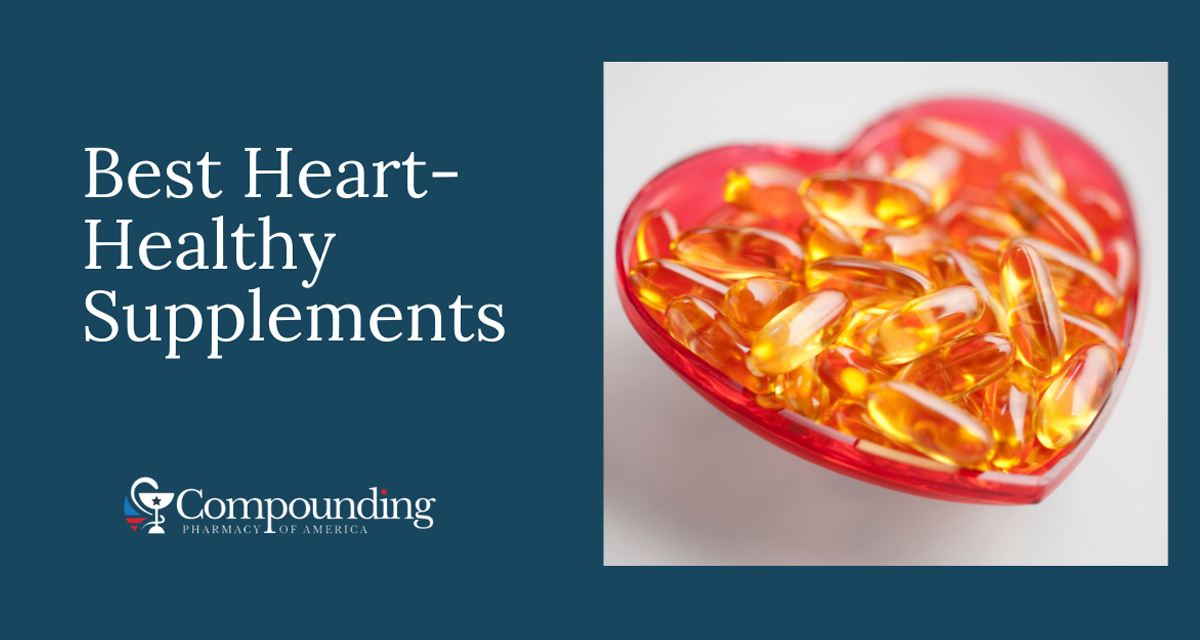
Cardiovascular health is fundamental to overall wellness, yet heart disease remains the leading cause of morbidity and mortality worldwide (Smith et al., 2024). Every year, initiatives like American Heart Month aim to raise awareness about the importance of protecting and strengthening the heart through education and proactive health measures. While the month of February highlights this crucial cause, caring for your heart is a year-round commitment.
A heart-healthy lifestyle begins with smart choices—staying active, eating a balanced diet, managing stress, and getting adequate sleep all play critical roles. However, even with the best intentions, modern life can make it challenging to meet all your heart’s needs through diet and lifestyle alone. That’s where supplements can provide essential support, filling nutritional gaps and offering targeted benefits for cardiovascular wellness.
From omega-3 fatty acids, known for their anti-inflammatory benefits, to CoQ10, which plays a key role in cellular energy production, research suggests that certain supplements may support cardiovascular health.
In this post, we’ll explore scientifically-backed supplements that may contribute to heart health, along with expert insights on their potential benefits. Whether you’re looking to support healthy circulation, maintain cholesterol levels, or optimize heart function, this guide will help you make informed choices.
The Role of Supplements in Heart Health
Maintaining heart health requires a combination of lifestyle habits, proper nutrition, and evidence-based strategies. Even with a balanced diet, some individuals may lack essential nutrients that play a role in cardiovascular function. Factors like busy schedules, dietary restrictions, and modern food processing can create nutritional gaps that may impact heart wellness over time.
Supplements provide a targeted way to address these needs, delivering nutrients that research suggests may support cardiovascular health. For instance, omega-3 fatty acids have been linked to reducing inflammation and improving lipid profiles (Mozaffarian & Wu, 2012), while CoQ10 plays a crucial role in cellular energy production and oxidative stress protection (Mortensen et al., 2014). Magnesium has been studied for its potential to help regulate blood pressure and support arterial flexibility (Zhang et al., 2022), reducing cardiovascular strain. Additionally, antioxidants like selenium and vitamin A may help combat oxidative stress and inflammation, both of which are linked to heart disease.
While supplements are not a replacement for a heart-healthy diet and lifestyle, they may enhance the benefits of proper nutrition and exercise. In the next section, we’ll explore key heart-supporting supplements, their research-backed benefits, and how they may fit into a heart-healthy routine.
Featured Heart-Healthy Supplements
Supporting heart function with the right nutrients can make a significant difference in overall cardiovascular wellness. Here are some research-backed supplements that may support heart health:
Omega Fish Oil
Key Benefits:
- Supports healthy cholesterol levels
- Helps reduce triglycerides & arterial stiffness
- May lower inflammation linked to heart disease
Why It’s Important:
Rich in omega-3 fatty acids, this supplement helps lower triglycerides, reduce inflammation, and support arterial health. Omega-3s are essential for maintaining a healthy heart rhythm and improving overall cardiovascular function.
The Science:
Research published in The American Journal of Clinical Nutrition found that regular omega-3 supplementation can lower triglycerides by 15–30%, significantly reducing the risk of heart disease.
CoQ10
Key Benefits:
- Supports energy production in heart cells
- Helps maintain healthy blood pressure
- May protect against oxidative stress & heart disease
Why It’s Important:
Coenzyme Q10 (CoQ10) is a powerful antioxidant that plays a vital role in cellular energy production. It is especially beneficial for individuals taking statins, which can deplete natural CoQ10 levels, leading to fatigue and muscle pain.
The Science:
Research published in Circulation: Heart Failure found that CoQ10 supplementation significantly improved cardiac function and reduced hospitalizations by 42% in patients with heart failure over a two-year period.
Magnesium Glycinate
Key Benefits:
- Supports healthy blood pressure regulation
- Improves arterial flexibility and circulation
- Helps reduce muscle tension and cardiovascular strain
Why It’s Important:
Magnesium is a crucial mineral that supports heart health by regulating blood pressure and improving arterial elasticity. It also plays a role in muscle relaxation, reducing tension in blood vessels and promoting healthy circulation. For individuals managing hypertension, magnesium supplementation may offer additional cardiovascular support.
The Science:
A meta-analysis published in Hypertension found that magnesium supplementation can lower blood pressure by 2–4 mmHg, helping to reduce strain on the cardiovascular system and support overall heart health.
Seleno-Methionine
Key Benefits:
- Provides powerful antioxidant protection
- Reduces inflammation and oxidative stress
- Supports cardiovascular and immune health
Why It’s Important:
Selenium is an essential trace mineral that plays a crucial role in protecting the heart from oxidative stress and inflammation. As a component of selenoproteins, it supports antioxidant defenses and helps regulate immune function. Adequate selenium intake has been linked to a lower risk of cardiovascular disease, making it an important nutrient for heart health.
The Science:
Research in The American Journal of Epidemiology showed that adequate selenium levels are associated with a 50% reduction in cardiovascular disease mortality, highlighting its critical role in heart health.
Vitamin A
Key Benefits:
- Supports vascular health and circulation
- Reduces oxidative stress and arterial damage
- Promotes overall cardiovascular function
Why It’s Important:
Vitamin A plays a crucial role in vascular health by reducing oxidative stress, which can damage blood vessels and increase the risk of cardiovascular disease. As an antioxidant, it helps protect arteries from free radical damage, promoting better circulation and reducing inflammation. Maintaining adequate vitamin A levels is essential for heart health and overall wellness.
The Science:
Research published in Advances in Nutrition found that antioxidant vitamins like vitamin A can help improve circulation and reduce arterial damage caused by oxidative stress, contributing to long-term heart health.
Zinc
Key Benefits:
- Supports healthy blood vessels and circulation
- Reduces inflammation linked to cardiovascular disease
- Promotes arterial elasticity and heart function
Why It’s Important:
Zinc is an essential mineral that plays a key role in maintaining cardiovascular health. It helps support blood vessel integrity, aids in wound healing, and contributes to reducing inflammation, which can impact arterial function. Zinc also supports immune health, further contributing to overall wellness.
The Science:
A study published in Frontiers in Nutrition found that zinc supplementation helps reduce inflammation and oxidative stress, both of which are linked to cardiovascular disease. Researchers noted that maintaining adequate zinc levels may support endothelial function and vascular health.
Probiotic GI
Key Benefits:
- Supports gut health and digestion
- Helps balance cholesterol levels
- Reduces inflammation linked to cardiovascular disease
Why It’s Important:
A healthy gut microbiome plays a crucial role in overall wellness, including heart health. Probiotics can help regulate cholesterol levels, reduce systemic inflammation, and support metabolic function. Emerging research suggests that gut health is directly linked to cardiovascular function, making probiotics an essential supplement for maintaining a healthy heart.
The Science:
A review published in Nature Reviews Cardiology found that probiotic supplementation can help lower LDL (bad) cholesterol and reduce inflammatory markers associated with cardiovascular disease. Researchers noted that probiotics may positively impact lipid metabolism, supporting heart health.
Each of these supplements is backed by scientific research and may help support cardiovascular health and overall well-being.
Incorporating one or more into a balanced lifestyle may provide additional support for heart function.
As always, consult with a healthcare professional before adding new supplements to your routine.
Subscribe to Our Newsletter
Be the first to shop exclusives and new deals from our vitamin and supplement shop.
Practical Heart Health Tips to Complement Supplements
While supplements play a vital role in supporting heart health, their benefits are amplified when combined with a heart-healthy lifestyle.
Here are some practical tips to help you take care of your cardiovascular system every day:
1. Prioritize a Heart-Healthy Diet
- Focus on consuming whole foods like fruits, vegetables, whole grains, and lean proteins.
- Include heart-friendly fats from sources like avocados, nuts, seeds, and fish high in omega-3s.
- Minimize processed foods, trans fats, and added sugars to reduce the risk of inflammation and high cholesterol.
2. Stay Physically Active
- Aim for at least 150 minutes of moderate-intensity aerobic exercise each week, such as brisk walking, cycling, or swimming.
- Incorporate strength training twice a week to support muscle and bone health, which benefits overall cardiovascular performance.
3. Manage Stress Effectively
- Chronic stress can elevate blood pressure and contribute to heart disease. Incorporate mindfulness practices like yoga, meditation, or deep breathing exercises into your routine.
- Engage in activities you enjoy to promote mental well-being and lower cortisol levels.
4. Get Quality Sleep
- Aim for 7–9 hours of sleep per night, as insufficient rest can negatively impact heart health by increasing blood pressure and stress hormones.
- Create a calming bedtime routine and consider sleep-supporting supplements like magnesium or melatonin if necessary.
5. Stay Hydrated
- Proper hydration supports blood flow and overall cardiovascular health. Aim to drink at least 8 glasses of water per day, adjusting based on your activity level and climate.
6. Avoid Harmful Habits
- If you smoke, seek support to quit, as smoking is a major risk factor for heart disease.
- Limit alcohol consumption, as excessive drinking can raise blood pressure and contribute to heart complications.
7. Regular Checkups and Monitoring
- Schedule regular health checkups to monitor blood pressure, cholesterol, and blood sugar levels.
- Early detection of potential issues can help prevent serious cardiovascular problems.
By combining heart-healthy lifestyle habits with research-backed supplements, you can take a proactive approach to cardiovascular wellness. Small, consistent changes—such as proper nutrition, regular exercise, and targeted supplementation—can help support long-term heart health.
FAQs About Heart-Healthy Supplements
Take Charge of Your Heart Health Today

Your heart works tirelessly to keep you going—so supporting it with the right nutrients may help maintain cardiovascular health. By incorporating research-backed heart-healthy supplements into your daily routine, you can take proactive steps toward supporting circulation, energy production, and overall wellness.
Whether it’s the anti-inflammatory properties of omega-3 fish oil, the cellular energy support of CoQ10, or the role of magnesium in blood pressure regulation, targeted supplementation may complement a heart-healthy lifestyle.
Remember, supplements work best when paired with heart-friendly habits like balanced nutrition, regular physical activity, and stress management. Small, consistent changes can contribute to long-term heart health.
Explore our carefully curated selection of heart-health supplements and take the first step toward prioritizing cardiovascular wellness—not just during American Heart Month, but all year long.
Always talk to your doctor before starting any new supplement regimen.
*Editor’s Note: This article was medically reviewed for accuracy and updated in February, 2025. Older articles on this topic have been updated and consolidated into this comprehensive guide.
Sources:
- Long working hours and risk of atrial fibrillation. (2022). Nature Reviews Cardiology. https://pmc.ncbi.nlm.nih.gov/articles/PMC11192625/
- National Center for Complementary and Integrative Health. (2023). Omega-3 supplements: What you need to know. https://www.nccih.nih.gov/health/omega3-supplements-what-you-need-to-know#:~:text=Can%20omega%2D3s%20help%20to%20reduce%20triglyceride%20levels?,of%20omega%2D3%20dietary%20supplements
- Wang, J., Xie, W., Zhao, J., Wang, H., Liu, L., & Liu, J. (2022). The role of gut microbiota in cardiovascular disease and therapeutic implications. Frontiers in Cardiovascular Medicine. https://pubmed.ncbi.nlm.nih.gov/35332793/
- Zhang, X., Li, Y., Del Gobbo, L. C., Rosanoff, A., Wang, J., Zhang, W., Song, Y., & Hu, F. B. (2016). Effects of magnesium supplementation on blood pressure: A meta-analysis of randomized controlled trials. Hypertension. https://www.ahajournals.org/doi/pdf/10.1161/HYPERTENSIONAHA.116.07664
- Selenium and cardiovascular health. (2023). American Journal of Epidemiology. https://academic.oup.com/aje/article-abstract/169/8/996/98892?redirectedFrom=fulltext&login=false
- Vitamin A and cardiovascular health. (2013). Advances in Nutrition. https://pmc.ncbi.nlm.nih.gov/articles/PMC4315737/
- Gut microbiota and cardiovascular disease. (2017). Nature Reviews Cardiology. https://www.nature.com/articles/nrcardio.2017.119
- Calder, P. C. (2017). Omega-3 fatty acids and cardiovascular disease: Evidence explained and mechanisms explored. Clinical Science, 131(1), 1–11. https://doi.org/10.1042/CS20160444
- Mortensen, S. A., Rosenfeldt, F., Kumar, A., Filipiak, K. J., Pella, D., Beckmann, R., & Brussaard, H. (2014). The effect of coenzyme Q10 on morbidity and mortality in chronic heart failure: Results from Q-SYMBIO. Journal of the American College of Cardiology: Heart Failure, 2(6), 641–649. https://doi.org/10.1016/j.jchf.2014.06.008
- Zhang, X., Li, Y., & Del Gobbo, L. C. (2016). Effects of magnesium supplementation on blood pressure: A meta-analysis of randomized controlled trials. Hypertension, 68(2), 324–333. https://doi.org/10.1161/HYPERTENSIONAHA.116.07664
- Rayman, M. P. (2012). Selenium and human health. The Lancet, 379(9822), 1256–1268. https://doi.org/10.1016/S0140-6736(11)61452-9
- Sugiura, M., Matsumoto, H., & Kudo, G. (2008). Antioxidant vitamins and carotenoids associated with low risk of cardiovascular disease. Journal of Nutritional Biochemistry, 19(6), 401–409. https://doi.org/10.1016/j.jnutbio.2007.05.005
- Haase, H., & Rink, L. (2009). The immune system and the impact of zinc during aging. Immunity & Aging, 6(1), 9. https://doi.org/10.1186/1742-4933-6-9
- Kothari, D., Patel, S., & Kim, S. K. (2019). Probiotic supplements and gut health: A systematic review. Nature Reviews Cardiology, 16(10), 605–617. https://doi.org/10.1038/s41569-019-0228-9
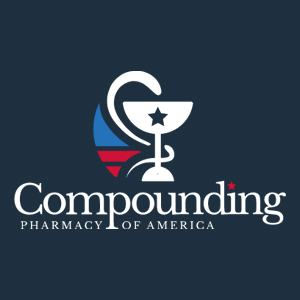
Compounding Pharmacy of America is committed to delivering reliable, accurate, and actionable health information to empower you on your wellness journey. Our content is created and reviewed by a dedicated team of professionals, including experienced writers and licensed healthcare experts.
Learn More About Compounding Pharmacy of America Editorial Team

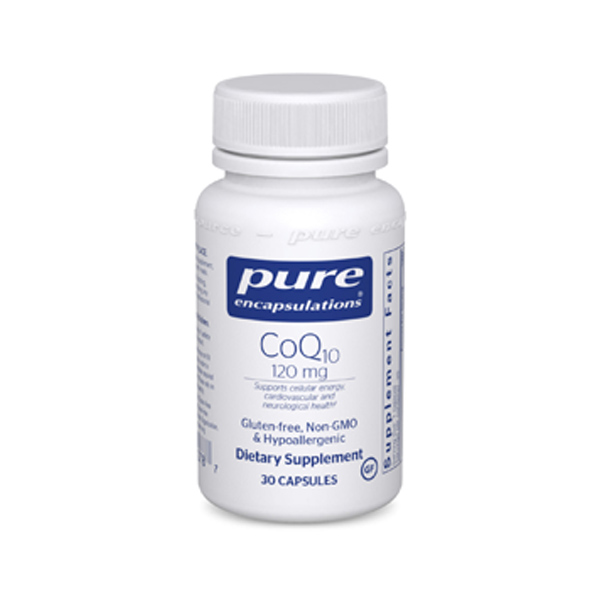
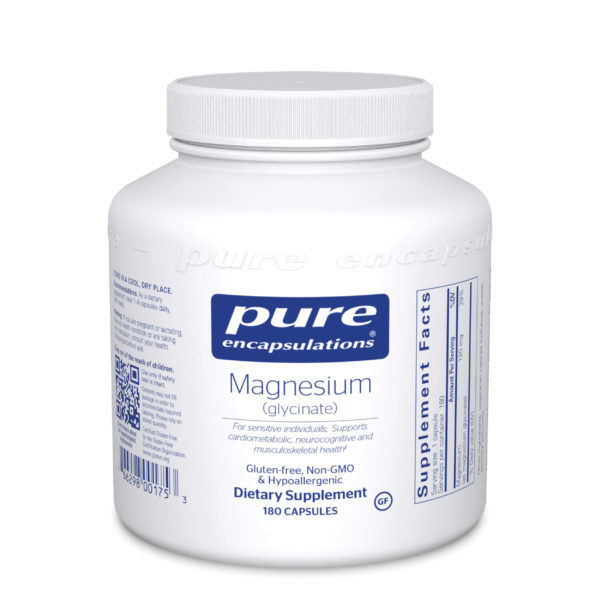
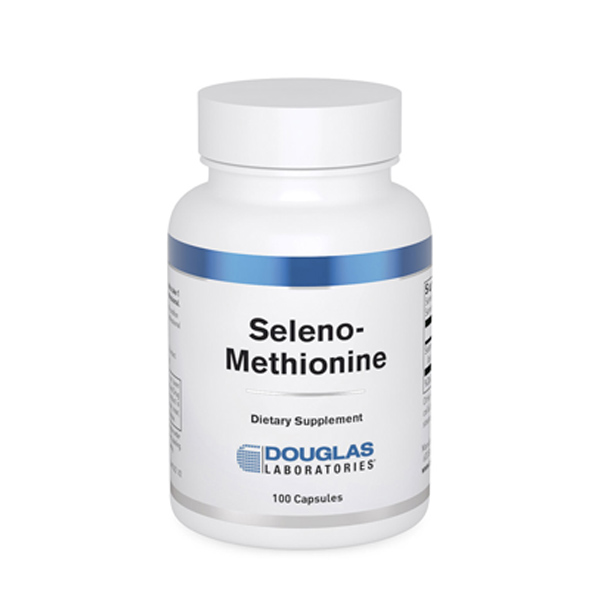
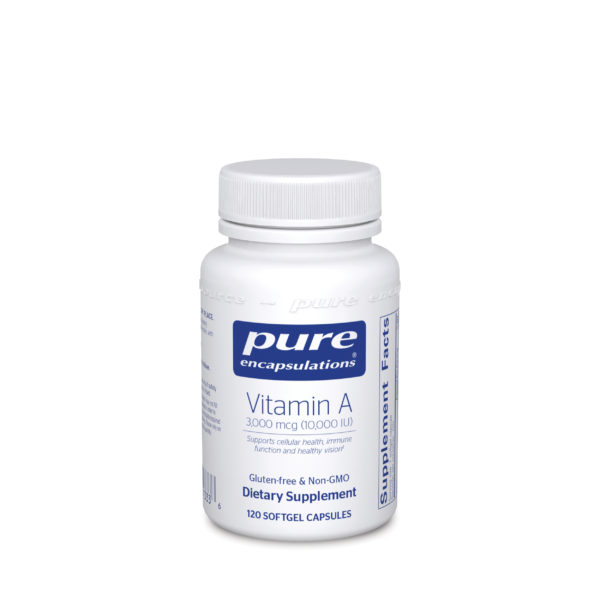
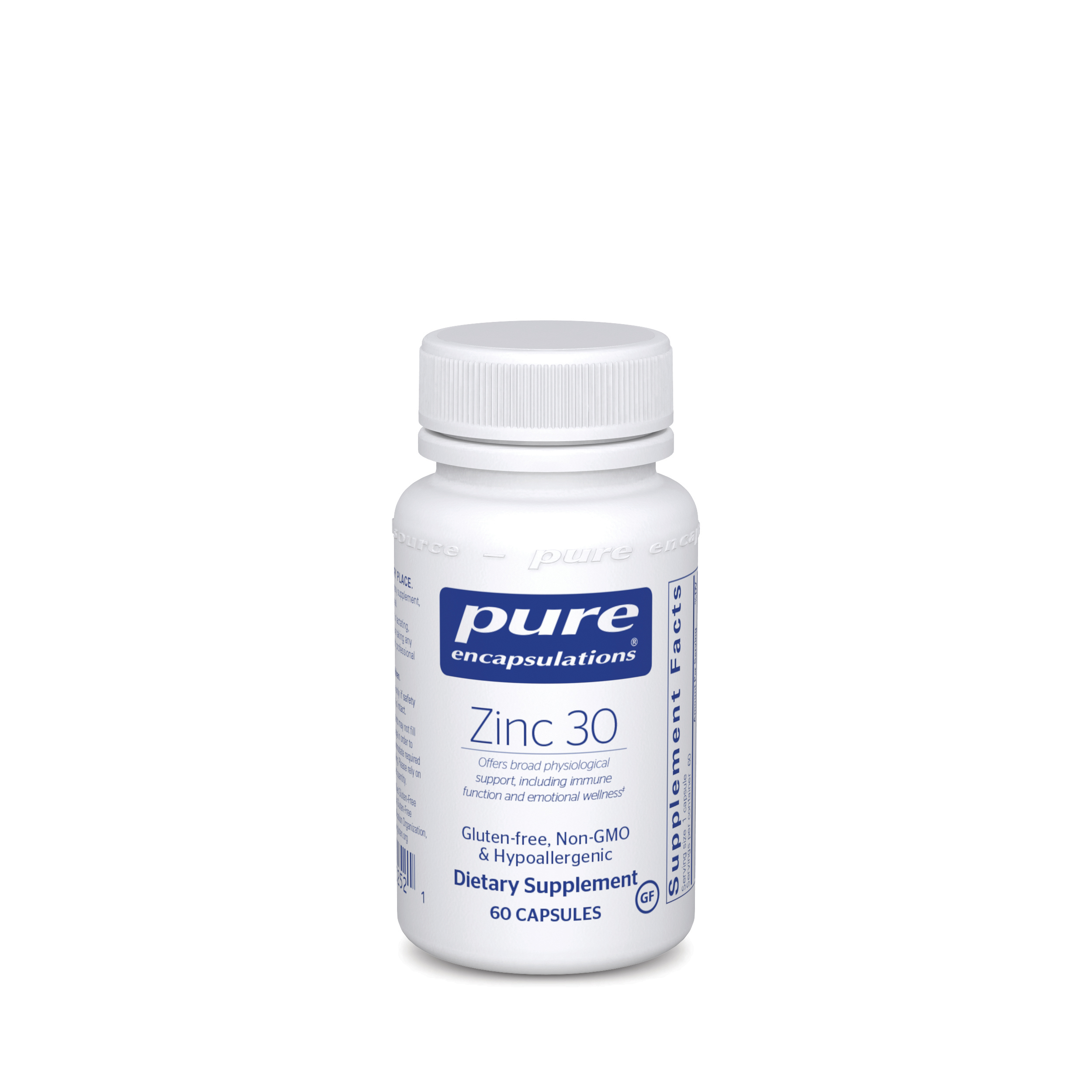
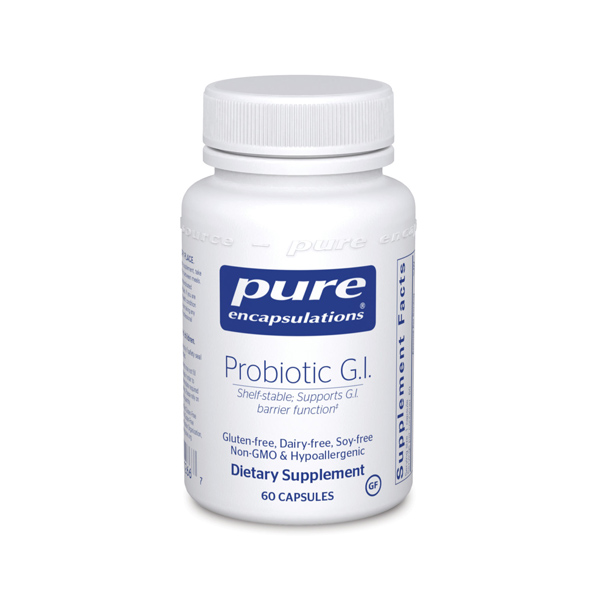





 Subscribe to Our Newsletter
Subscribe to Our Newsletter
